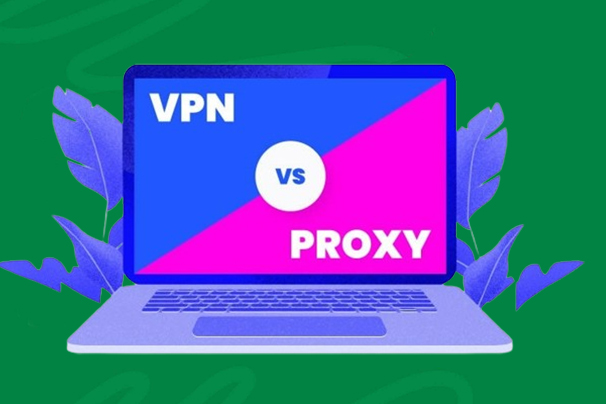Proxy Vs VPN – If you want to increase your internet connection’s privacy and security, it is common knowledge to turn to a VPN or proxy. Since these tools can help protect your identity online, many people, businesses, and schools make use of them interchangeably. Although they are a little bit similar, you need to know that they work in different ways.

Only by understanding the difference between VPN and proxy can you determine the best tool for your browsing. In this article, we will focus on proxy vs.VPN and help highlight the differences between these two.
Proxy vs. VPN
Both VPNs and proxies provide a very high degree of privacy, allowing you to access the internet anonymously by hiding your IP in different ways. Let’s take a look at their definitions individually before diving into their differences.
Proxy Servers
A proxy helps to retrieve the source requested by the client on their behalf. Proxy’s servers excel at IP misdirection and masking. This makes them a good choice for viewing geographically limited content. Also, they allow users to bypass content monitoring and restrictions. Or enforce the website content restrictions. It works on one app or website and not several. Some common types of proxy servers include SOCKS5, HTTP, and Transparent.
VPN
VPNs are referred to as virtual private networks. They help to create encrypted data for users, protecting their online identities by hiding their IP addresses. And allows them to make use of public Wi-Fi safely. Also, they work on the operating system level. This means they redirect the entire user’s traffic, whether it comes from an app or their browser. Also, they encrypt the traffic between the user’s device and the internet.
As a result of this, the internet service provider cannot see what they are doing online. They would only know that the user is connected to a server. With the help of this encryption, users are protected from government surveillance, website tracking, and hackers who want to spy on their devices.
Proxy vs. VPN: What Is the Difference?
Although these two can help you get the job done, they do it differently. Depending on your browsing needs, you may want to use one over the other. When it comes to similarities, we know they both help hide your real IP address. And provide you with privacy and increased online anonymity. Now let’s take a look at their differences:
Encryption
VPN is just like a secret agent for your internet. It not only disguises your IP address but also makes all your online moves invisible by using a special code called encryption. On the other hand, a VPN proxy is like a quick disguise for your location; it helps with your IP address but forgets encryption, so your online actions might still be seen by other people.
Ease of use
VPNs tend to be very easy to use and set up because they are specially designed for individuals, unlike proxies that cater more to professionals and businesses. So, proxies are better choices for business usage cases such as SEO research, ad verification, and web scraping. While VPNs may be a good choice for normal internet users with technical experience,.
Coverage:
VPNs work on the level of the operating system and reroute all the traffic through its servers, while proxy servers, on the other hand, work on applications and only reroute the traffic of a certain browser or app. In literal terms, this means VPNs encrypt all your web activities, regardless of the app or website. While proxy servers only help to hide one app or website at a time, this shows that VPNs offer more coverage to users.
Which Server can be Slower?
This depends on how you access the two; both proxies and VPN servers can be slower depending on the browsing. This is especially true for free proxy connections; they can be very slow and less secure. This is because of less support, fewer configuration options, and reduced infrastructure. Although speed varies from provider to provider, VPN servers are usually the faster option.
Configuration options and versatility
When you set up a VPN on your device, it takes charge of all your internet activity. On the other hand, a proxy lets you choose—you can make it work only for a specific app or browser, and the rest can keep using your regular internet connection. So, while VPNs are a one-size-fits-all solution, proxies give you more choices and ways to use them.
Do I Need Both?
No, you don’t need to download a proxy if you already purchased a VPN. VPNs can do what a proxy server can. However, keep in mind that if you have a transparent proxy server that only blocks certain websites; you may need to purchase a VPN to help bypass restrictions.
Proxy vs. VPN: Which is the best option?
If your goal is just to hide your IP address, you can either go for the proxy server or VPN. There is absolutely no winner when it comes to the proxy vs. VPN debate. The best option depends on your browsing needs. Whether you want to make use of VPNs or proxies, it is advisable to do your research. And make use of a good provider with a reliable track record.
